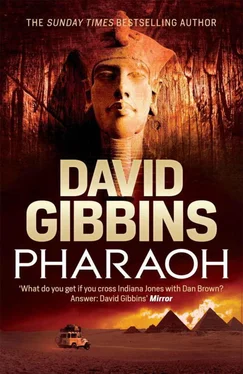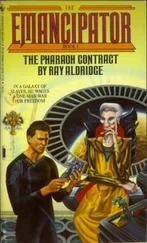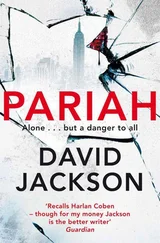He sat alongside Charrière behind a rock. They were outside the zariba now, but it was safer to hide until the officers had regained control and there was less risk of being mistaken for dervishes and shot. The officers would want to capture any surviving dervishes, yet would probably be unwilling to give chase until they were certain that the enemy was routed. Mayne and Charrière would have to rely on their speed to escape once they had revealed themselves. Mayne lay close to the earth, panting hard, regaining his breath. His sense of smell was returning, and he recoiled from it: the acrid sulphurous reek of black powder, the sickly latrine stench of spilled bowels, the coppery odour of blood, the smell on his own body of sweat and fear and adrenalin. He caught a whiff of roasting flesh, and saw a dervish a few feet away who had been shot at point-blank range, the powder burns encircling the wound and wisps of smoke rising from the hole. The smoke of battle was clearing now, and he sensed sunlight through the haze. He heard a bugle and the shouted orders of the sergeants and corporals, ordering the men to re-form the square in case of fresh attack. He stared back at the ground. The earth was cracked and blackened, parched as it always had been, the dark patches of blood already sopped up by the dust. The desert was beginning to absorb the residue of battle even before the frenzy of killing had died away.
He listened hard. He realised that the background sound had gone, the chanting, the drumbeat, the pounding of feet; the dervish army had abandoned the wells and was retreating. Soon the soldiers he could now see standing and moving about slowly in the swirling dust would snap back to reality; the square would consolidate, and the advance would be ordered. But for the moment they were caught by the shock of battle, as dazed as he was. Colour was returning, gradually, as if he were looking at an old-fashioned daguerreotype, where the iodine and mercury had created a maroon monochrome but the artist had touched it up with crude streaks of colour to give a semblance of reality.
Mayne looked at his hands, blackened by the greasy grime of gunpowder, and felt the throbbing bruise on his neck where the bullet had struck him before they had entered the square. He stood up and looked around him, trying to calm his breathing. He saw blood and brains spattered on faces, and the cracked lips of dying men, their bodies no longer producing saliva, their tongues swollen and off-white with mucus. One man missing the top of his head convulsed and juddered, and then went still. A soldier lying on dead comrades pulled a spear from his own neck, as he did so releasing a gush of arterial blood that pumped out of him like a geyser, his face whitening as his body drained. He fell back, alabaster among the grey. Another who had been too close to the muzzle blast of the screw gun was lying obscenely exposed with his clothes blown off, his skin lacerated in a crazy pattern like a pavement. It was the first time Mayne had registered the instant aftermath of battle. Ten minutes ago these men had all been alive, and the shocking speed of their deaths seemed to leave a lingering aura over them, like the warmth on a fresh corpse; but he knew that with each rasping final breath that aura would dissipate and the colours would go, sucked into the desert and extinguished by the burning heat of the sun, leaving only a monochrome image of desiccation and decay.
He remembered something his Dongolese guide Shaytan had told him at the cataracts, about the wind created by a desert battle: that if you listened hard enough, you could hear the distant shrieks and sighs of banshees who performed a wild dance in the sky high above the fight, mocking both the victors and the vanquished. He remembered the carving of the desert battle he had seen in the underground chamber beside the cataract: the Egyptian soldiers advancing hieratically, Akhenaten at their head, then their bodies splayed below, the vast disc of the sun and its rays dominating all. Had Akhenaten sensed this too? Had he fought battles against an enemy from the south where the desert seemed the only victor, where the sun seemed to eclipse all? Had he turned back to Egypt, bringing with him a new God and a belief that the power of the Aten might release men from conflict that could only ever give the illusion of victory?
He remembered crouching beside Burnaby, an event that seemed impossibly long ago, and Burnaby’s whispered warning to him: watch your back . He looked at Charrière, sword still in his hand, the blood congealing on his arm where he had prised out the bullet. He could barely think of his thirst. They would both need water, soon. There was no chance now of reaching the wells of Abu Klea, which would soon be under British control; they could not risk being seized and questioned. It would have to be the Nile, more than twenty miles off. They had to hope to find another source on the way if they were to have any chance of surviving the marathon run that now lay ahead of them.
He remembered their pursuers. Had that been the purpose of Burnaby’s warning? He looked beyond Charrière to where the clearing smoke had revealed the rocky knoll to the east, the rising ground that had provided a defensive position for the British encampment overnight. That was the direction their pursuers would have taken if they had decided to outflank the battlefield and regain the track to the Nile on the other side. More likely they would be lingering in the valley, waiting for the British to march down to the wells, intent on picking over the battlefield and checking the dead so they could tell their paymaster that their job had been done for them. But it would only be a matter of time before they realised that Mayne and Charrière had survived, and that with camels they had the advantage of speed. Mayne knew it was essential that the two of them cover the open ground on the way to the shrub and mimosa forest before their pursuers regained their trail. The forest would be a maze of danger and dead-end passages in the dark, and they needed to get as far through it as they could while it was still daylight.
And there was added urgency. The dervishes who had melted away from the battle would soon pass word of their defeat to the Mahdi himself, which might lead him to order the final assault on the city, losing Mayne precious time in his attempt to reach Gordon before it was overwhelmed. Abu Klea would show the Mahdi that the British were a force to be reckoned with, that they were superior to the Egyptian army he had terrorised and routed two years before. If the British were to stay in the Sudan, the jihad would not be the walkover his early successes had promised. But the victory might ultimately be a hollow one. The Mahdi knew that the British were there under duress, and that if he were to order the assault on Khartoum now, to remove Gordon from any hope of rescue, they would abandon the Sudan and withdraw to Egypt. He knew they were not present in numbers sufficient to defeat his main force in a set-piece battle; yet if word of Abu Klea were to reach tribesmen of wavering loyalties, it might tilt them towards the British, whilest the news might cause the garrison at Khartoum to redouble their resolve to stand firm, thinking that a British force was finally on its way to defeat the Mahdist army and relieve the city.
Mayne stared in the direction of the Nile to the south, seeing only the haze of an approaching dust storm on the horizon, and below that the undulating rocky plain that extended to the dark smudge marking the beginning of the tangled mass of shrub. He could see no sign of humanity, no flickering lights, no crumbled ruins, not even the camel trail that must lie somewhere in the folds of the ground ahead. He felt as if by passing through the battle he had entered a darker place, a shadowland, a world beyond knowledge where even the pharaohs had feared to tread. This was the land that Gordon had made his own, and it was only here that his motivations could be understood. He swallowed hard, trying to rid his throat of the taste of battle, then twisted round to look one last time. There was no sign of their pursuers, for now. He nodded to Charrière, who dropped the sword and sheathed his knife. Mayne holstered his revolver and grasped the wrapped rifle that was still on his back, knowing that the instant they stood up in their Arab gear they could still fall prey to a trigger-happy British soldier. They crouched forward, readying to leap up and run.
Читать дальше












